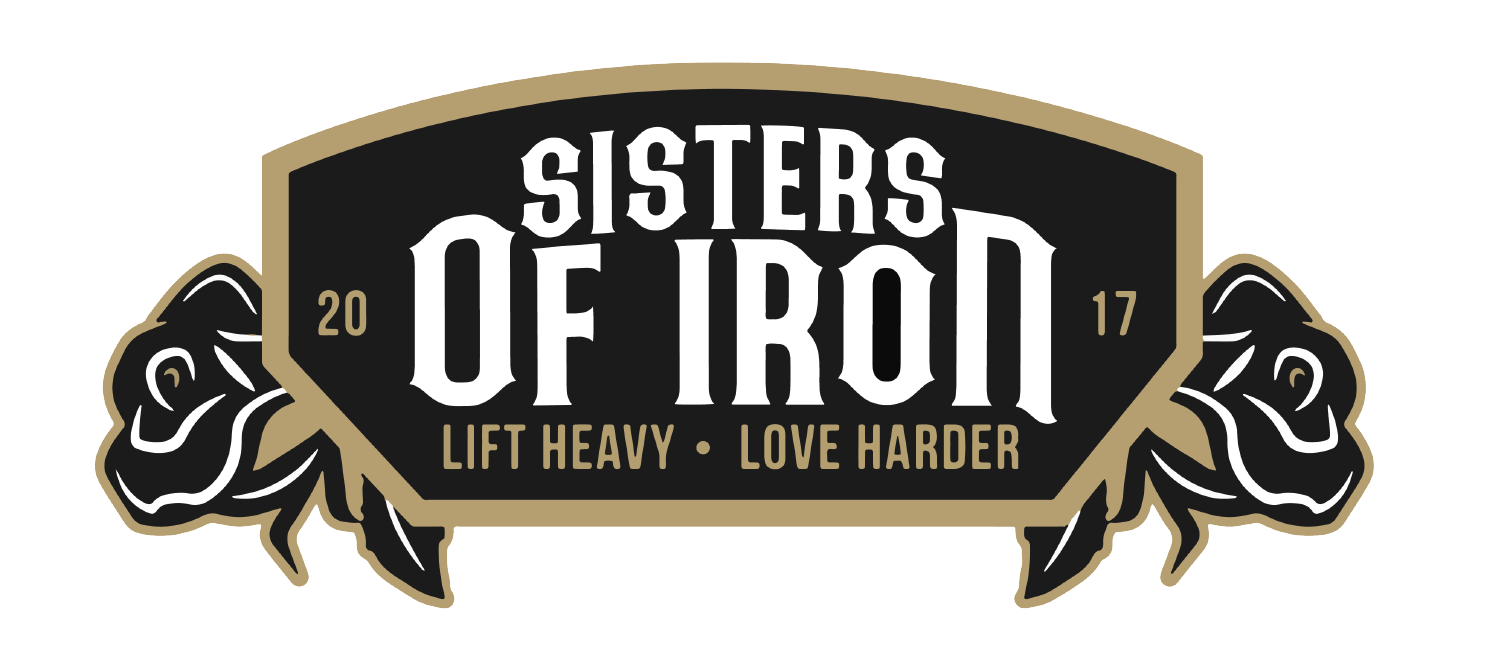Eating To Be Strong, Not Small By Dr. Kristin Lander, DC, CISSN

Eating To Be Strong, Not Small
By Dr. Kristin Lander, DC, CISSN
Free pre/post-training meals guide
The thing I love about strength sports, and I bet you feel the same exact way, is how it becomes a celebration of what our bodies are capable of every.single.day. The empowering feeling of, not only lifting a heavy weight, but overcoming self-imposed limitations is addicting, am I right?!
The thing I don’t love about strength sports, though, is the pressure frequently put on lifters (especially females) to look a certain way. If you’re not careful about who you allow in your social media feed, you can easily become bombarded with this message that slowly eats away at your physical achievements and begins to put your physique as the sole focus.
Now don’t get me wrong, if you want to change your physique, there is absolutely nothing wrong with that. But hopefully that drive to do so comes from inside you, not from outside pressure through predatory marketing tactics or people who don’t share your same values. I think it's time to reject the notion that we have to look a certain way to be an athlete. Amazing athletes come in all shapes and sizes.
As women, we are often encouraged to eat to be small throughout our athletic career, while men are typically encouraged to eat to get big and strong. I remember as a high school gymnast we were told not to eat anything after practice, but my brother (a wrestler) was taught how to refuel his body so he could be ready for tomorrow’s practice. I guess it’s really not a huge surprise to learn that a lot of female athletes suffer from disordered eating, body dysmorphia, and/or an eating disorder, is it?
It is surprising to me, though, that we as a society haven’t fully gravitated towards teaching women how to eat to be strong rather than eating to be small. The idea of eating for performance in and of itself often strikes fear in a lot of lifters' minds due to many misconceptions about what it means to properly fuel their body.
Common misconceptions about eating for performance
- By choosing to fuel their bodies and eating to be strong, many women fear they will gain body fat. This is just not true (unless you make it your intention to do so). If you are severely under-nourished and begin eating a lot more food than your body needs, sure...you will put on body fat. But if you just increase calories to maintenance levels (as opposed to living in a caloric deficit), you likely won’t run into this issue.
-
Another very common misconception lifters are fed which actually stems from the bodybuilding world is the notion that in order to get strong, they have to eat 1g of protein for every 1lb of body weight. Did you know this is not true or scientifically backed for increased strength? Research has shown that 1.4 - 2.0 g/kg of protein is sufficient to put on strength, and eating more than that has no additional benefit (in terms of strength gains). In fact, eating more protein takes away from the macros that actually fuel your training (carbs and fats).
One important point to note about using body mass as a calculation for protein intake, the calculation it is inherently discriminatory towards athletes who don’t “fit the mold” of what society thinks and athlete is. If a female athlete has over 33% body fat, it would be wise to adapt the equation to use lean body mass instead of total body mass as fat tissue does not have the same metabolic demands as muscle tissue does. Furthermore, using total body mass in this scenario will put calories from protein so high that the athlete will not have sufficient calories from carbohydrates or fats which are the macronutrients most responsible for giving us energy for training, recovery, and daily life.
- Another big misconception about eating for performance is that one cannot reach their body composition goals via these methods. If that’s you, please know that you absolutely can achieve any physique goal you may have by eating this way. Performance nutrition is simply a lens that nutritionists use for decision making with athletes. It says, “we will view all nutritional changes first by looking at how they are impacting your performance.” This means that if you are eating in a deficit and performance or strength starts to decline your nutritionist should immediately develop a plan so that it doesn't continue, even better, they will craft a plan for you where performance and strength declines are prevented!
- Finally, the biggest assumption is that eating for performance equals an unregulated/uncontrolled nutrition intake (such as eating whatever you want all of the time). Every athlete who has their nutrition controlled to optimize performance and recovery does not merely eat everything in sight. They eat the amount of calories (and macronutrient distribution) required by their body to fuel their training, optimize their recovery, keep hormones balanced and healthy, keep their body in a state of homeostasis, and promote a healthy relationship with food. [Free pre/post-training meals guide]
Who should be eating for performance?
- If you are a strength athlete, then eating for performance is for you. Period.
- If you have been struggling to stay in a lower weight class, this is for you.
- If you are a chronic dieter and cannot remember the last time you weren’t trying to cut for something.
- If you have plateaued in strength.
- If you are frequently hungry, tired, and/or irritable.
- If you have any kind of strength goal.
- If you want to have energy to do things outside of the gym
What will happen when you eat for performance?
First, you will notice your recovery improve. Your body has the energy it needs to push harder in the gym, go for bigger numbers, and recover like never before. You will feel so much better, and your energy will improve immensely. With all the extra energy, your body is no longer just trying to survive, it can thrive. Your body will be able to carry out all of its normal, bodily functions and still have the energy to repair damaged muscles so you can put on strength.
Secondly, your mood, sleep, and energy levels will improve. Your body will be in homeostasis and balanced, which means it’s working with you instead of fighting against you.
Finally, you will feel so much better!
Eating to be small can be damaging, mentally and physically
I’ve talked a lot on my podcast, The Strength Academy, about various metabolic adaptations that occur when you are in a caloric deficit for prolonged periods of time.
One of those is a syndrome called RED-S that is incredibly common in strength sports and comes with a host of health consequences. I did a whole podcast on this that you can listen to here, or read this journal article, or this one.
Additionally, our minds get stuck in a restrictive mindset. Especially regarding food, we start looking at it as a limited resource (lower calories, higher volume etc.) rather than a resource to help our performance in training. We start recognizing being hungry as a normal, welcomed feeling and ignore our body’s pleas for food.
Finally, we increase our risk of injury. Our bodies are struggling along, always under recovered, so it doesn’t take much to push us over the edge. And when we are injured, it takes us longer to recover simply because our bodies do not have the energy to allocate towards healing.
When we ditch the notion of eating to be small, we create an environment that allows our bodies to thrive.
We are part of a movement encouraging all lifters to take care of and fuel their bodies. We are not delicate center pieces meant for display, we are lionesses fiercely taking on the world!
Get started fueling your body with my free pre/post-training meals guide.
Leave a comment